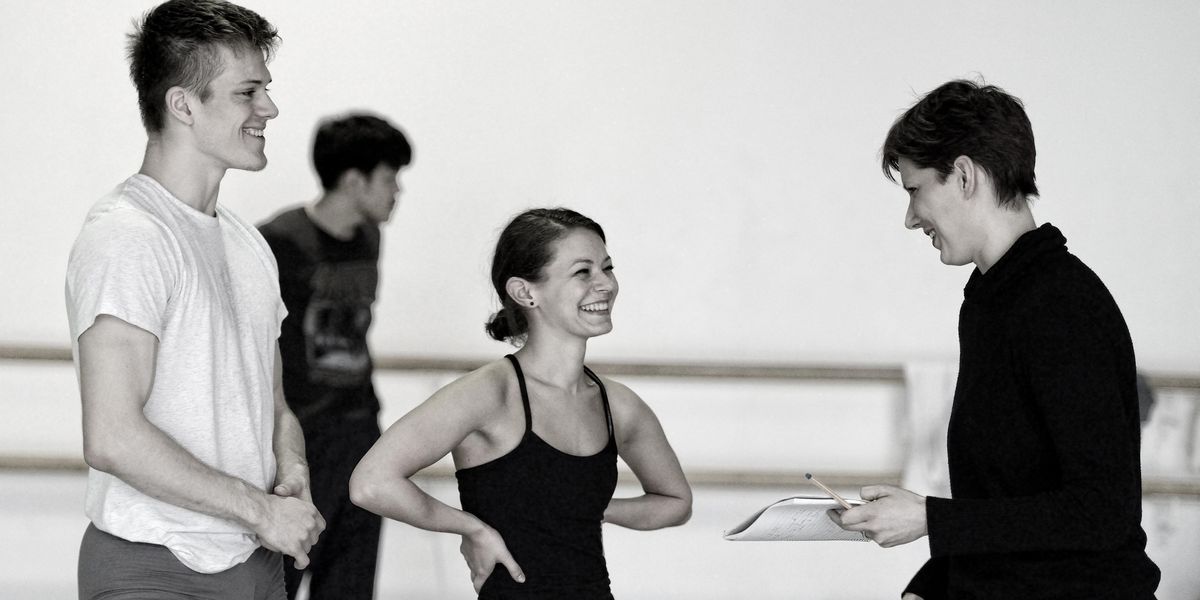Breaking Bad Biases
Whether you’re getting paid less than your male counterparts to guest or you’re seeing more creative opportunities go to the guys, what can women do when they’re being treated unfairly in the studio?
Talk About Your Goals
The fact that men are more coveted in dance doesn’t have to mean that women lose out on opportunities. Emily Molnar, artistic director of Vancouver’s Ballet BC, believes your emboldened male peers could be asking for the opportunities that you’re only hoping for. “Initiative makes change and asking is always worth it,” she says. “A few of my dancers recently came to me and expressed an interest in directing, so I’m having them rehearse each other. It might not happen right away, but most companies today are open to these ideas. You can also look outside the company for opportunities to choreograph or gain other experiences.” Try setting work on college dancers or starting a community-based group for new work, and remain vocal with your company leadership about your goals as they evolve.
Assert Yourself Creatively
A more subtle example of sexism might give a male dancer more creative freedom in the studio. “The male lead may have the option to change a manège in the piece to suit his strengths, but the woman’s variation just is what it is,” says Marissa Parmenter, a company dancer with Festival Ballet Providence. “Having a choice actually gives a dancer confidence and helps her define her role as an artist.” If you’d like to change solo choreography, don’t be afraid to ask, if it’s appropriate. Of course, it’s important to proceed with caution when questioning a choreographer’s artistic choices, and to approach the situation from a place of respect.
Don’t Get Shortchanged
Men and women should receive the same paychecks, but this isn’t always the case, especially if you’re guesting. “I have three or four years more experience than my husband, but I almost always get paid less, sometimes for working longer hours,” says Parmenter. “I think if you go to the artistic director or person doing the hiring, most will just be honest with you if the male dancers are paid on a higher scale.” But it can be a tough conversation if you’d like to see that change. Jenifer Ringer, who spent more than two decades with the New York City Ballet, urges dancers to break out of the expectation that you should never speak to those in charge. “In the real world, you have a voice and value. So say that you want to talk about your paycheck and how it is determined,” she says, adding that if your company is affiliated with a union, a representative should help make sure that you get a meeting and that your concerns are recognized.
Cite Examples
When it comes to any unfair company policy, from equal pay to maternity leave, it’s best to arm yourself with examples of how it’s done at other companies before making the case for change. You may spark a movement in your current workplace or uncover information that will help you decide where to go when it’s time to move on. “In my career, I’ve made choices to dance where I felt inspired or where the choreographer gave me a stronger voice,” says Parmenter. “Some communities are more open to change than others.” Tap your network of peers to find out what other work environments are really like.
Find a Mentor
If you’re struggling but it doesn’t feel appropriate to sit down with your choreographer, Ringer recommends talking to a dancer who has been through it. “There are a lot of great female mentors who would love to share their success,” she says. “Find a woman you admire and ask what barriers she’s had to overcome.” It may change your perspective.
Expect Leadership to Listen
Conversations about sexism are not easy, but we must be willing to have them, because feeling defeated won’t change a thing. “It’s challenging to speak with your boss,” says Molnar, but they may surprise you. Just because sexist patterns exist, it doesn’t mean there’s necessarily a negative motive behind it. “The directors I know care about the art form and the artists,” says Molnar. “We do make mistakes—it’s a stressful job and sometimes we can’t see it all—but dancers have a lot of power to wake us up and allow us to grow with them.”




